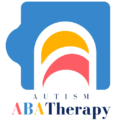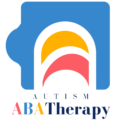Autism Diagnosis
Autism Spectrum Disorder (ASD) is a complex neurodevelopmental condition that affects individuals across a wide range of abilities and challenges. Understanding the nuances of autism spectrum disorder is crucial for fostering acceptance and providing appropriate support.
In navigating the spectrum of autism, obtaining a timely diagnosis is a crucial step toward providing individuals with the support they need. The diagnostic process involves a comprehensive assessment, considering various aspects of behavior, communication, and social interaction. As awareness of autism spectrum disorder continues to grow, so does the importance of early identification, intervention, and community involvement. By understanding the diagnostic criteria and actively participating in advocacy efforts, we can collectively contribute to a more inclusive and supportive society for individuals on the autism spectrum.
The Importance of Getting a Diagnosis
Receiving a diagnosis of autism spectrum disorder is a pivotal moment in the journey of those affected and their families. Early diagnosis allows for timely intervention and support, enhancing the overall quality of life for individuals on the spectrum. According to the Centers for Disease Control and Prevention (CDC), early identification and intervention significantly improve long-term outcomes for individuals with ASD. Healthcare providers play a vital role in recognizing the signs and symptoms, paving the way for early developmental interventions.
How is Autism Diagnosed
The diagnosis of autism spectrum disorder involves a comprehensive evaluation of a person’s behavior, communication, and social interactions. Mental health professionals, often in collaboration with developmental specialists, utilize the Diagnostic and Statistical Manual of Mental Disorders (DSM-5), published by the American Psychiatric Association, to guide the assessment process. The DSM-5 outlines specific criteria that must be met for a diagnosis of autism spectrum disorder.
During the diagnostic process, healthcare providers pay close attention to various indicators, such as impaired social interaction, challenges in communication and language development, and repetitive behaviors. The assessment may also consider sensory issues, as individuals with ASD may exhibit heightened or diminished sensitivities to sensory input. These factors, combined with the individual’s developmental history, aid in the accurate diagnosis of autism spectrum disorder.
ADOS-2 Assessment:
One of the tools commonly used in the assessment of autism spectrum disorder is the Autism Diagnostic Observation Schedule, Second Edition (ADOS-2). This standardized observational tool helps professionals evaluate an individual’s social communication skills and identify behaviors associated with autism. The ADOS-2 is particularly useful in differentiating between autism spectrum disorder and other developmental disorders. It provides valuable insights into the individual’s strengths, challenges, and overall functioning.
Diagnosing Autism Spectrum Disorder
The diagnostic criteria for autism spectrum disorder, as outlined in the DSM-5, emphasize deficits in social communication and interaction, as well as restricted, repetitive patterns of behavior, interests, or activities. It’s essential for healthcare providers to consider the individual’s developmental history and assess whether these behaviors significantly impact daily functioning.
Developmental Disabilities Monitoring
The Department of Health and Human Services conducts ongoing developmental disabilities monitoring to track the prevalence of autism spectrum disorders. This surveillance provides valuable data that inform public health policies, resources, and interventions. Understanding the prevalence of ASD aids in addressing the growing need for support and services for individuals and families affected by autism.
Ways to Give and Get Involved
Advocacy and community involvement are integral components of supporting individuals with autism spectrum disorder. Various organizations, including those affiliated with the Centers for Disease Control and Prevention and the American Psychiatric Association, offer resources, research initiatives, and advocacy programs. Getting involved in these efforts contributes to raising awareness, reducing stigma, and fostering inclusivity for people with ASD.
Autism Diagnosis FAQs:
Understanding the process of diagnosing autism spectrum disorder is essential for individuals seeking answers and support. Here are some frequently asked questions surrounding the diagnosis of autism:
What are the early signs and symptoms of autism spectrum disorder?
Early signs may include challenges in social interaction, delayed language development, limited eye contact, and repetitive behaviors. However, it’s crucial to note that every child with ASD is unique, and symptoms can vary widely.
How is autism diagnosed in children?
A2: Diagnosing autism in children involves a multidisciplinary approach, including observations, interviews with caregivers, and developmental assessments. Early childhood screenings and interventions play a critical role in supporting a child’s development.
Can adults be diagnosed with autism spectrum disorder?
Yes, individuals can receive an autism diagnosis at any age. Adults seeking a diagnosis may undergo a comprehensive assessment that considers their developmental history, current challenges, and strengths.
Are there different types of autism spectrum disorders?
A4: The term “autism spectrum disorder” encompasses a range of conditions. This spectrum includes autistic disorder, Asperger’s syndrome, and pervasive developmental disorder not otherwise specified (PDD-NOS). The DSM-5 has adopted a more inclusive approach, recognizing the diverse presentations of ASD.
Services We Provide
Initial Assessment
Our initial assessment will help us focus our skills on the areas where the problem expresses itself the most. We can then start working on it and slowly build on that and expand our ABA therapy for autism to other precarious mental areas.
Early Intervention
ABA therapy for autism works best when applied early. We emphasize early intervention to help individuals fulfill their potential and progress in their educational, professional, and personal lives as independently as possible.
In-Home ABA Therapy
Our therapists collaborate with parents and caregivers, who are vital partners in the journey to positive change. Together, we build a strong foundation for progress for yourself and your loved ones.
School-Based ABA Therapy
Our interventions have been proven to help students succeed not only academically but also in building positive social relationships within the school community.
Telehealth ABA Therapy by a BCBA
Telehealth ABA therapy can be a game-changer. It breaks down barriers and makes essential therapy services more accessible to follow than ever before.
ADOS-2 Testing
The ADOS-2 is a semi-structured, standardized assessment instrument that includes play-based activities designed to observe signs of autism


